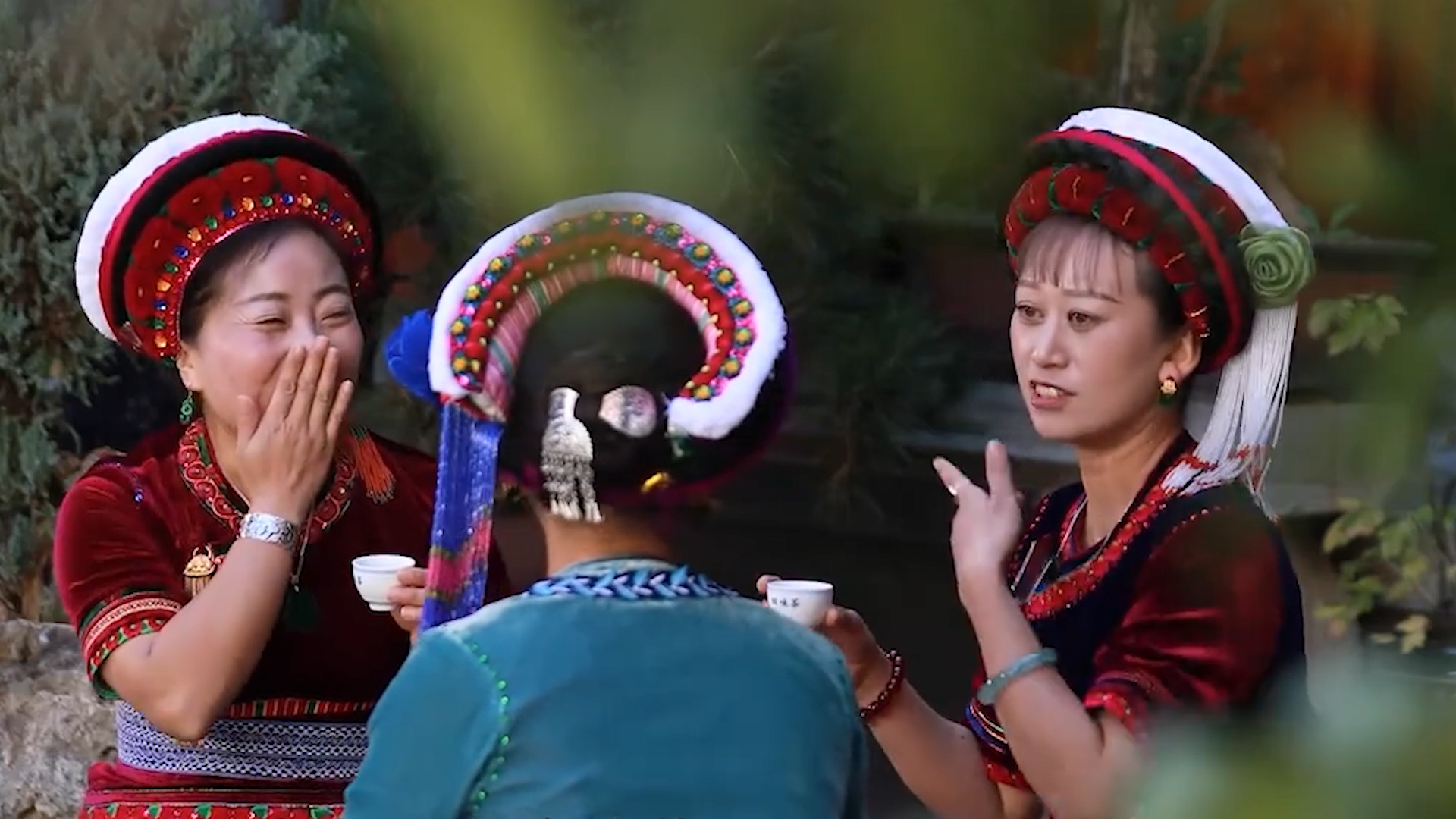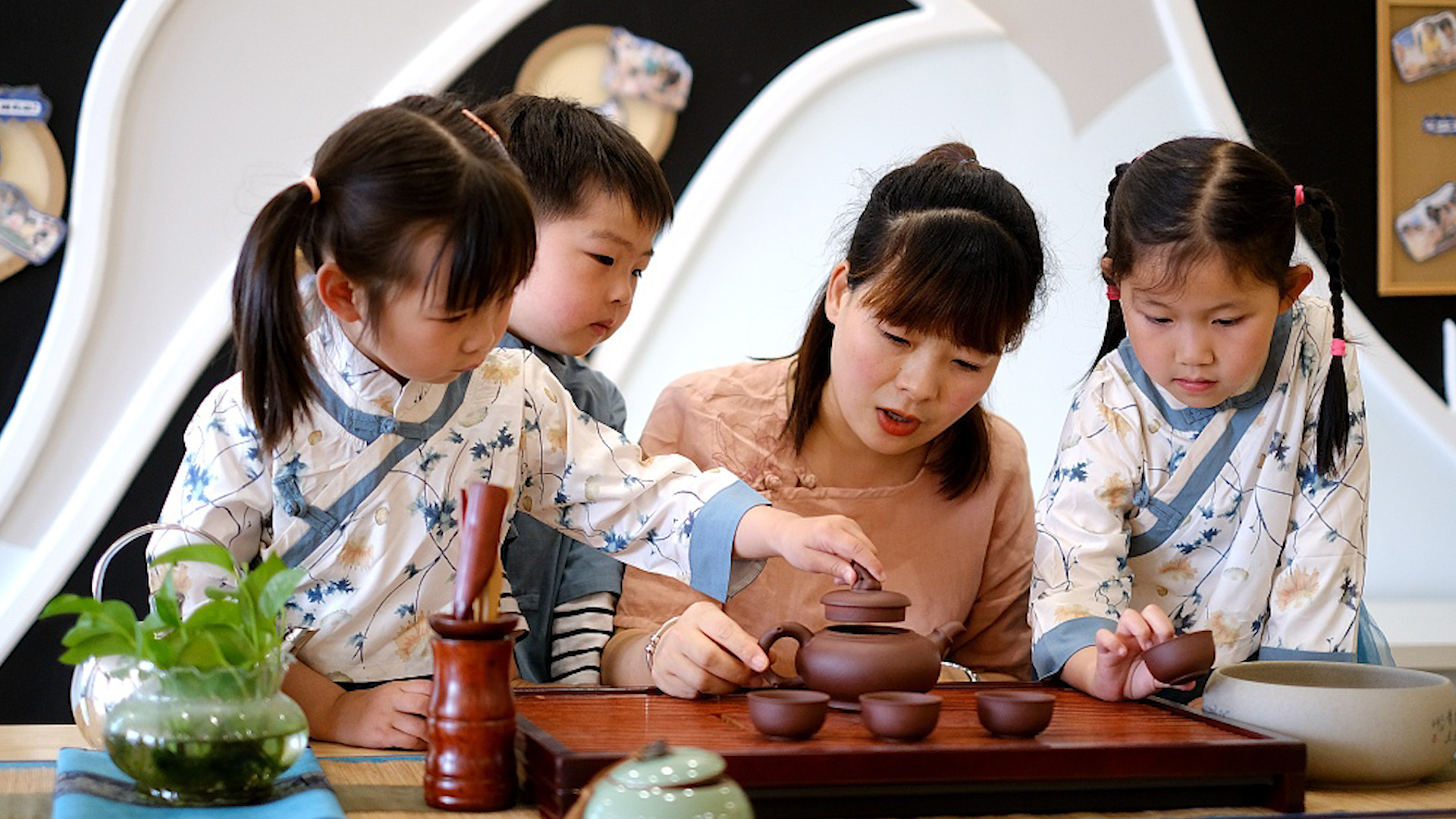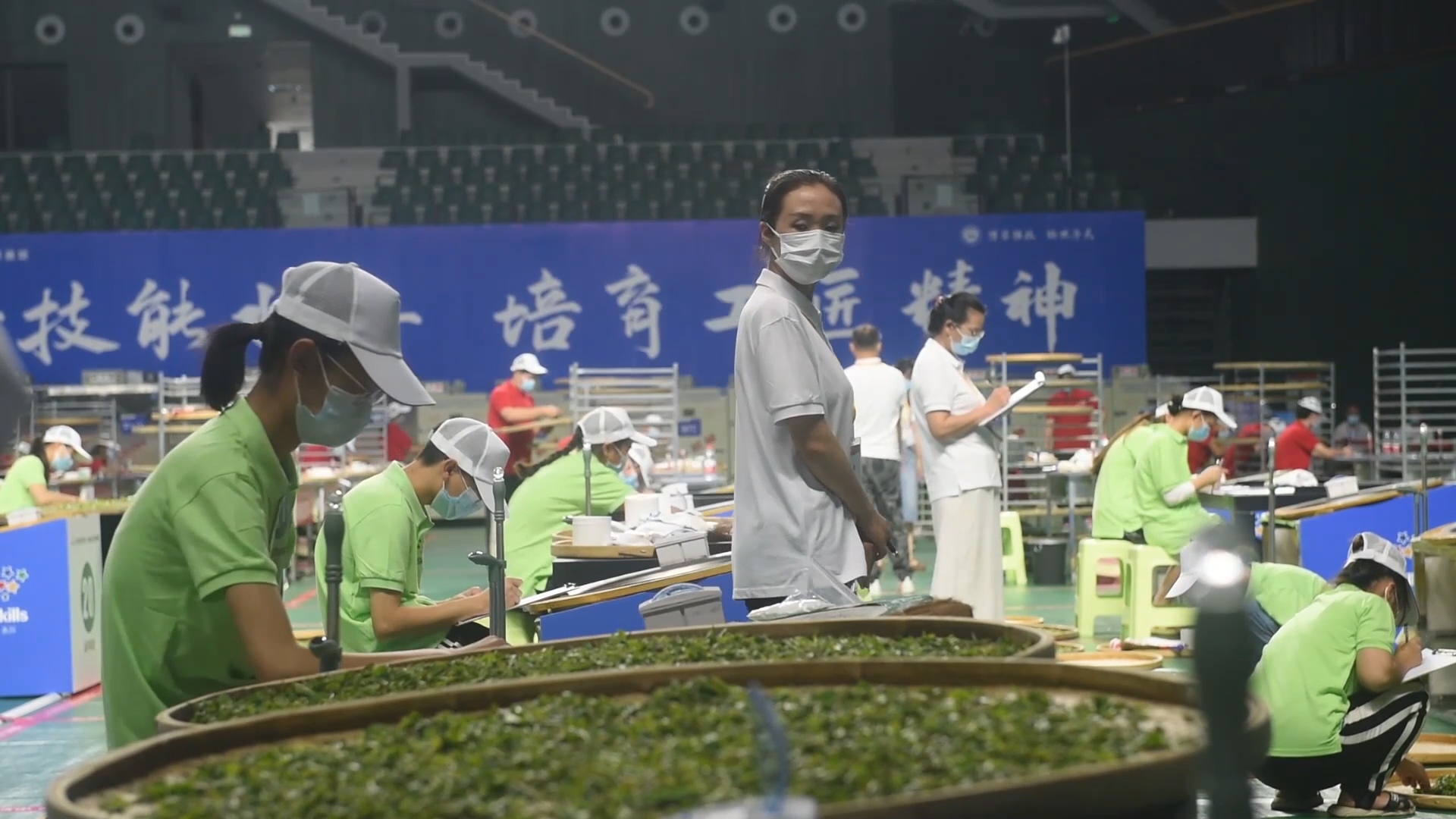“中國茶”憑什麼成為世界非遺?
“中國傳統制茶技藝及其相關習俗”正式被列入聯合國教科文組織非物質文化遺産名錄,成為中國的第43個“世界級非遺”。“中國茶”含義豐富,是有關茶園管理、茶葉採摘、茶的手工製作,以及茶的飲用和分享的知識、技藝和實踐的全部內容。
The item of traditional tea processing techniques and associated social practices in China has recently been added to the UNESCO Representative List of Intangible Cultural Heritage for Humanity, becoming the 43rd Chinese item on the list. The item consists of knowledge, skills, and practices concerning the management of tea plantations, picking of tea leaves, manual processing, drinking, and sharing of tea.

中國傳統制茶技藝主要集中于秦嶺淮河以南、青藏高原以東的江南、江北、西南和華南四大茶區。制茶師根據當地風土,運用殺青、發酵、窨制等核心技藝,發展出六大茶類及花茶等再加工茶。
China's traditional tea processing techniques are mainly concentrated in four tea-growing areas in the south of Huaihe River in Qinling Mountains and east of Qinghai-Tibet Plateau, namely South and North of the Yangtze River, and Southwest and South China. Based on natural conditions and local customs, tea producers have developed six categories of tea as well as reprocessed teas such as flower-scented teas through core skills like enzyme inactivation, fermentation and scenting.
2000多種茶品供人飲用,由此形成了不同的習俗。“潮州工夫茶”,其“二十一道沖泡技法”展現了完整的中國茶道形式;白族的“三道茶”需由家中或族中最有威望的長輩親自司茶;而瑤族待客時,女性則在火塘邊,打“油茶”,唱山歌。
There are more than 2,000 varieties of tea for people to drink in China, thus forming different customs. Thegongfu tea in Chaozhou City in South China shows a complete form of Chinese tea ceremony with its ritual made up by 21 brewing techniques. The three-course tea of the Bai ethnic minority need to be personally served by the most prestigious elders in the family. When people of Yao ethnic minority entertain guests, local women make oil tea and sing folk songs by the fireplace.

中國人通過制茶、泡茶、品茶,提升了精神境界和道德修養。唐朝人陸羽在《茶經》中就將飲茶提升到了精神層面,他認為,喝茶的人是追求“至道”的賢德之士。如今,“烹茶童子”演變成少兒茶藝活動,“萌娃”以茶為媒,學禮悟道,縷縷茶香沁潤小小心靈。
By making, brewing and tasting tea, the Chinese people have enriched their spiritual world and enhanced moral cultivation. Lu Yu of the Tang Dynasty, known as the Sage of Tea, elevated tea drinking to a spiritual activity in the Classic of Tea, the first monograph on tea in the world. He believed that tea drinkers were virtuous people who pursue the supreme truth. Once a job done by minors, tea brewing has become a popular experience among children in today's China. Via tea, they learn about etiquettes, ponder over life philosophy, and have their mind nourished amidst the aroma of tea.

在茶文化的帶動和促進下,中國茶産業也快速發展。千年前就有茶馬古道、萬里茶道……如今,走進湖南寶田侗族苗族鄉,映入眼簾的是此起彼伏的茶山、茶樹,村民因地制宜,實現茶葉外銷海外,同時發展旅遊業,一舉多得,助力鄉村振興。
Driven and promoted by tea culture, China's tea industry is also developing at a fast clip. Thousands of years ago, there were the Tea Horse Road and The Great Tea Road to serve the trade of tea and others. Nowadays, when visiting the Dong and Miao ethnic township of Baotian in central China's Hunan Province, one can see rolling mountains covered with tealeaves. The villagers have adapted to local conditions to develop a tea industry and sell related products overseas. They have also developed tea-based tourism, which also boosts rural revitalization.
非遺的活力,更體現在“存續”與“傳承”。中國已經制定了相關保護計劃,鼓勵傳承人按照傳統方式授徒傳藝,依託院校培養專門人才等措施,實施協同保護行動。
The vitality of intangible cultural heritage is more reflected in its existence and inheritance. China has formulated relevant protection projects to encourage inheritors to teach students and pass on their skills in the traditional way, and to carry out coordinated protection actions by relying on institutions to train specialized talents.

中國是茶的故鄉,猶如百科全書一般的“中國茶”成為世界非遺,將有助於世界深化對中華優秀傳統文化的認知,構建人類命運共同體的文化底蘊。
China is the hometown of tea, and the inclusion of the encyclopedic Chinese tea into the world cultural intangible heritage list will help the world deepen its understanding of the fine traditional Chinese culture, and build the cultural foundation for a community with a shared future for mankind.










